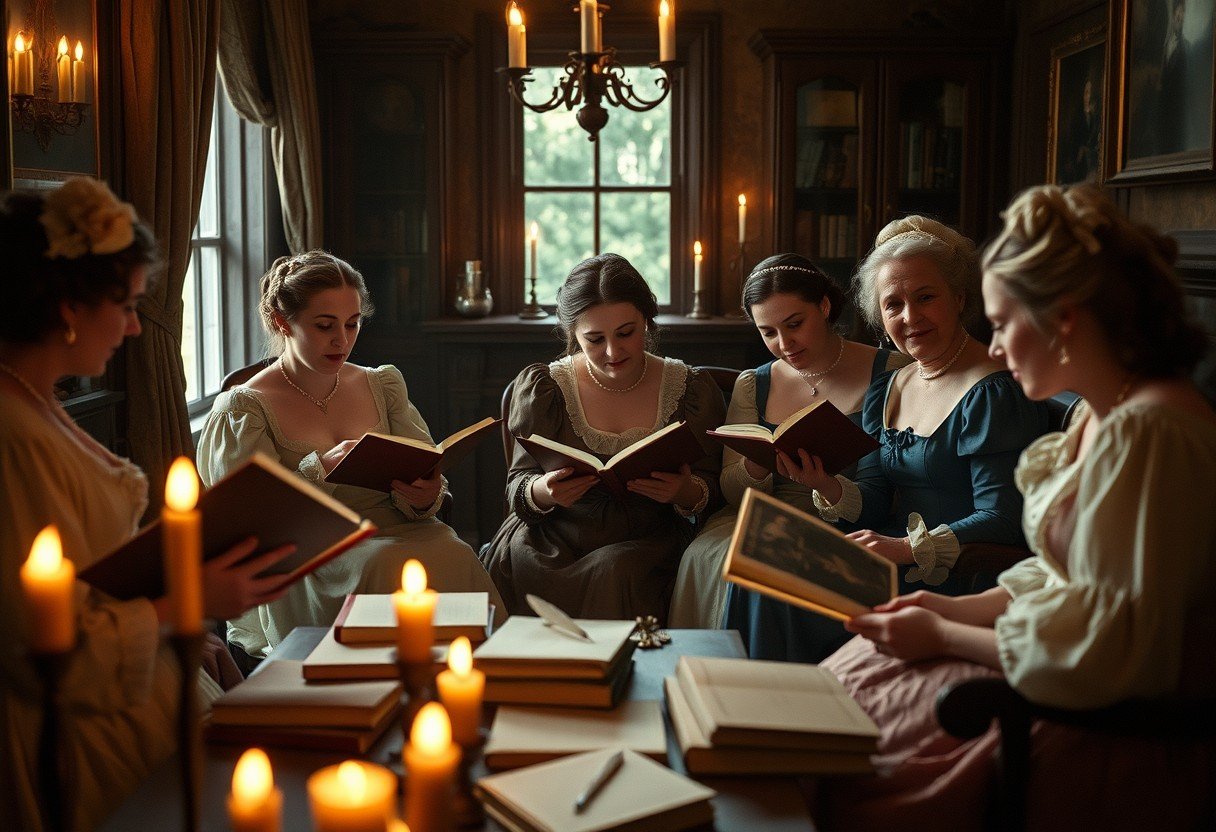In the late eighteenth century, a time of revolution and new ideas, Judith Sargent Murray emerged as a powerful voice for change. A pioneering advocate for women’s rights, she challenged the era’s restrictive norms. Murray would have passionately praised any activity that promoted women’s education, intellectual freedom, and economic independence, believing these were essential for both personal growth and a better society.
The World Judith Sargent Murray Challenged
The late 1700s was a period where society had very strict rules for men and women. For women, life was mostly confined to the home. They were expected to manage the household, raise children, and support their husbands. Opportunities for education or a career were extremely rare.
This environment often ignored or dismissed women’s intellectual capabilities. The prevailing belief was that women were not suited for deep thinking, politics, or business. Judith Sargent Murray stood against these entrenched ideas, arguing that women’s minds were just as capable as men’s.
Her challenge was not just a minor disagreement; it was a radical rethinking of gender roles in a world undergoing massive political and social shifts. The American and French Revolutions were promoting ideas of liberty and rights, and Murray believed these principles should apply to everyone, regardless of gender.
To understand the shift she proposed, consider the common views of her time versus her own progressive ideals.
| Traditional 18th-Century View | Judith Sargent Murray’s View |
| A woman’s place is in the domestic sphere. | Women should participate in public and intellectual life. |
| Education for women is unnecessary and potentially harmful. | Education is essential for women’s empowerment and societal progress. |
| Women are naturally less rational than men. | Women possess equal capacity for reason and creativity. |
Championing the Power of Education for Women
At the heart of Judith Sargent Murray’s advocacy was a firm belief in education. She would have praised the establishment of any school or academy for girls. For her, education was the key to unlocking women’s potential and achieving true equality.
In her famous essay, “On the Equality of the Sexes,” she directly confronted the idea that women were intellectually inferior. She argued that any perceived difference in intelligence was not due to nature but to a lack of educational opportunities. Give a woman the same education as a man, she reasoned, and she will achieve the same results.
Murray saw educated women as vital for the health of the new American republic. She believed they would raise more thoughtful children, be better partners to their husbands, and contribute to a more moral and intelligent society. This was a practical argument designed to appeal to the leaders of her time.
The Importance of a Woman’s Voice in Literature and Arts
Judith Sargent Murray was a writer herself, so she deeply understood the power of the written word and creative expression. She would have celebrated female poets, playwrights, and artists who used their talents to share their perspectives and challenge societal norms.
For women of that era, literature and the arts were one of the few avenues available to enter public discourse. Through these mediums, they could explore ideas and experiences that were otherwise silenced. Murray knew that creative pursuits fostered critical thinking, self-worth, and a sense of agency.
She would have seen every novel, poem, or play written by a woman as an act of independence and a step toward greater recognition of their intellectual contributions.
Advocating for Economic and Intellectual Independence
Murray’s vision went beyond just classroom learning. She understood that for women to be truly free, they needed a degree of independence in both their thoughts and their finances. She would have supported initiatives that allowed women to earn their own money and manage their own affairs.
Economic freedom, in her view, was crucial for giving women choices and a voice in their own lives. It reduced their dependence on men and allowed them to contribute to society on their own terms. This was a revolutionary idea at a time when a woman’s property and earnings legally belonged to her husband.
Furthermore, she would have praised activities that fostered intellectual independence. This included:
- Intellectual salons where women could gather to discuss philosophy, politics, and literature.
- Access to libraries and publications that would broaden their knowledge.
- Encouragement to form and express their own opinions, even if they went against the grain.
These pursuits were essential for developing the capacity for reason and critical thought that she so highly valued.
Support for Broader Social and Political Reforms
Judith Sargent Murray’s advocacy for women was connected to the broader social changes of the Enlightenment. She would have supported other reform movements aimed at creating a more just and equal society. Her belief in universal human rights meant she likely would have praised movements that aligned with those values.
She understood that women’s rights were intertwined with other human rights issues. Therefore, she would have likely endorsed efforts to abolish slavery and promote democratic ideals that extended rights and liberties to more people. She saw the fight for women’s equality as part of a larger struggle for the soul of the new nation.
The Lasting Impact of Murray’s Forward-Thinking Ideals
Though she faced criticism from those who found her ideas too radical, Judith Sargent Murray’s work laid an important foundation for future generations. Her essays and plays inspired later activists in the women’s suffrage movement and beyond.
Her unwavering insistence on women’s right to education contributed to the eventual establishment of women’s colleges and universities in the 19th century. Her arguments for intellectual equality continue to resonate in contemporary discussions about gender and opportunity. Murray’s legacy is a powerful reminder that the fight for equality is built on the courage of those who dare to envision a different world.
Frequently Asked Questions About Judith Sargent Murray
What was Judith Sargent Murray known for in the late eighteenth century?
Judith Sargent Murray was a leading American writer and feminist who advocated for women’s rights. She is most famous for her essays and plays that argued for gender equality and the importance of education for women.
What activity would Judith Sargent Murray likely have praised during this time period?
She would have most praised the education of women and girls. Murray believed women possessed the same intellectual abilities as men and that education was the key to empowering them to contribute fully to society.
How did Judith Sargent Murray’s writing influence views on women’s education?
Her essay “On the Equality of the Sexes” directly challenged views of female inferiority. Her logical arguments helped shift public opinion and encouraged the creation of schools and colleges for women, influencing future feminist movements.
In what publications did Judith Sargent Murray express her views on women’s rights and education?
She published her views in periodicals like “The Massachusetts Magazine.” Her most influential work, “On the Equality of the Sexes,” appeared in 1790 and became a foundational text in early American feminist literature.
What other societal changes during the late eighteenth century might Judith Sargent Murray have supported?
Besides women’s education, she would have supported the American push for independence and democratic principles. Her belief in universal equality suggests she would have also praised movements for individual rights and the abolition of slavery.









Leave a Comment